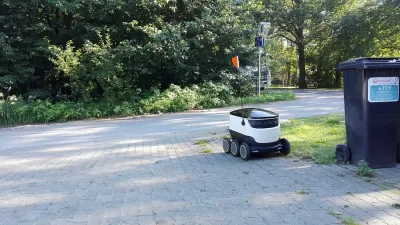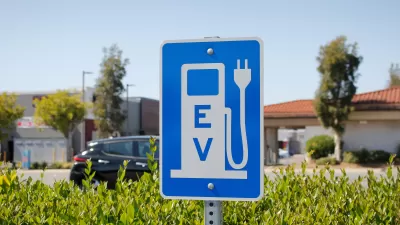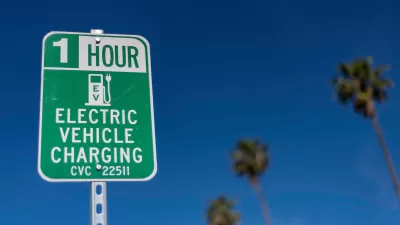Even as cars and commuter planes look much like they did generations ago, big changes are coming for transportation, argues Timothy B. Lee in a piece for Vox.

In transportation, many technologies exist as concepts or in niches for a long time before they reach widespread adoption. Timothy B. Lee suggests that there's reason to expect big changes in the coming years as many of these technologies go mainstream. "According to Bloomberg, battery costs have fallen by 65 percent since 2010," Lee writes for Vox as an example. Changes in battery costs will be big drivers in changes for the overall affordability of electric vehicles.
Another transit technology that seems to be coming is delivery drones (both flying and grounded): "Rolling food delivery robots have already started to show up on the sidewalks of San Francisco and other cities." Whether these drones will be allowed to share sidewalks with people is a subject up for debate. Autonomous vehicles, which are on the minds of companies like Uber, Tesla and Google, could also change trucking, and many startups are already dedicated to this very industry. "Initially, these trucks will handle highway driving with a human driver on hand to handle unexpected situations. But, eventually, software will likely replace human drivers altogether," Lee reports.
FULL STORY: 9 radical changes that are coming to transportation

Maui's Vacation Rental Debate Turns Ugly
Verbal attacks, misinformation campaigns and fistfights plague a high-stakes debate to convert thousands of vacation rentals into long-term housing.

Planetizen Federal Action Tracker
A weekly monitor of how Trump’s orders and actions are impacting planners and planning in America.

Chicago’s Ghost Rails
Just beneath the surface of the modern city lie the remnants of its expansive early 20th-century streetcar system.

Bend, Oregon Zoning Reforms Prioritize Small-Scale Housing
The city altered its zoning code to allow multi-family housing and eliminated parking mandates citywide.

Amtrak Cutting Jobs, Funding to High-Speed Rail
The agency plans to cut 10 percent of its workforce and has confirmed it will not fund new high-speed rail projects.

LA Denies Basic Services to Unhoused Residents
The city has repeatedly failed to respond to requests for trash pickup at encampment sites, and eliminated a program that provided mobile showers and toilets.
Urban Design for Planners 1: Software Tools
This six-course series explores essential urban design concepts using open source software and equips planners with the tools they need to participate fully in the urban design process.
Planning for Universal Design
Learn the tools for implementing Universal Design in planning regulations.
planning NEXT
Appalachian Highlands Housing Partners
Mpact (founded as Rail~Volution)
City of Camden Redevelopment Agency
City of Astoria
City of Portland
City of Laramie





























